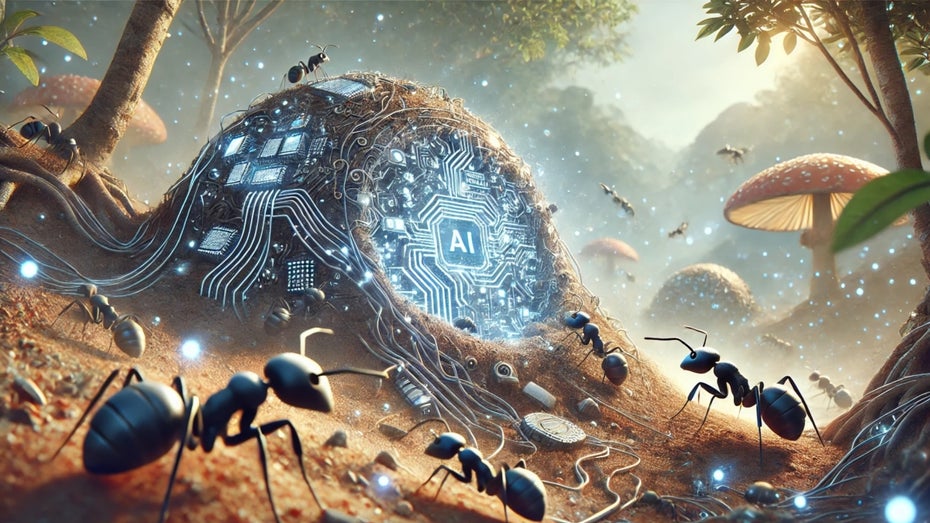The Illusion of Artificial General Intelligence: A Critical Look by Neil Lawrence
In a recent discussion, machine learning expert Neil Lawrence provided a fresh perspective on the concept of artificial general intelligence (AGI). Lawrence, an accomplished computer scientist at Cambridge University, argues that the pursuit of AGI is misguided and that we need to rethink our definition of intelligence altogether.
 Exploring the nuances of intelligence through the lens of nature.
Exploring the nuances of intelligence through the lens of nature.
Reassessing the Fundamentals of Intelligence
Lawrence’s argument centers around the assertion that current discussions about AGI are fundamentally flawed. While many tech companies are enthusiastic about ChatGPT and its contemporaries heralding the dawn of human-like machines, Lawrence firmly believes we are far from that reality. He critiques the notion that machines will ever achieve an intelligence level comparable to that of humans across diverse tasks.
“It is crucial that any reasonable definition of intelligence includes components of information processing.”
This perspective invites a deeper discussion about what constitutes intelligence in machines. Lawrence challenges the prevalent assumption that AI can serve as a universal replacement for human capabilities, particularly in areas that demand emotional intelligence or creative problem-solving.
A Lesson from Ant Colonies
To illustrate his point, Lawrence draws an analogy with ant colonies. These creatures exemplify a form of distributed intelligence. Ants do not operate as isolated geniuses but rather collaborate collectively based on shared information to solve problems in their environment.
This raises an important consideration: could a more nuanced understanding of intelligence, inspired by natural systems, influence how we develop and interact with AI? The ecosystems of ant societies operate on principles that emphasize cooperation rather than individual brilliance, suggesting a fundamental shift in how we might define and perceive artificial intelligence.
 Ant colonies as a model for collective intelligence.
Ant colonies as a model for collective intelligence.
AI’s Limitation in Everyday Human Activities
According to Lawrence, while AI systems can excel in fields that valued analytical and structured outputs—like mathematics or strategy games—there remains a stark gap regarding activities that characterize human experiences. Tasks such as playing sports, engaging in casual conversation, or offering emotional support require a depth of understanding that current AI lacks.
He posits that these abilities are intricately tied to human limitations. Our decision-making capabilities and sensory experiences shape our intelligence, aspects that machines cannot replicate due to their inherently different nature.
The Uniqueness of Human Intelligence
Lawrence concludes that the things that make human intelligence unique—empathy, creativity, and complex social interactions—are not just products of intelligence itself, but artifacts of our evolution and existence. He emphasizes:
“It is these traits that render human intelligence truly singular.”
This argument compels us to reconsider not just how we perceive AI, but also the roles we envision for it in society. By detaching the narrative of AGI from our technological outlook, we may find new pathways for applications that enhance human life without attempting to simulate it entirely.
Conclusion
As we delve into an era increasingly governed by artificial intelligence, the insights from experts like Neil Lawrence are invaluable. Realizing that intelligence is not merely an algorithmic process but a complex interplay of various factors offers us a fuller understanding of both human and machine capabilities. In doing so, we can chart a future where technology complements rather than competes with our unique human traits.
The dialogue around artificial intelligence must evolve, embracing the truth that while our machines can automate and calculate, the essence of intelligence remains an inimitable characteristic of our very humanity.


 Photo by
Photo by 











